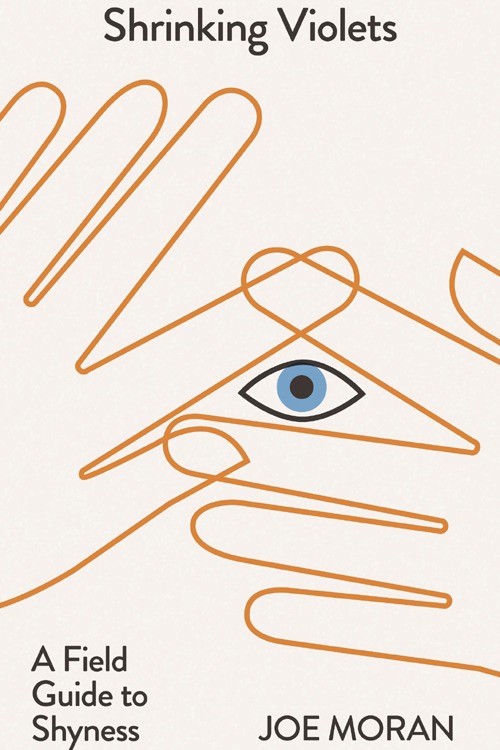
Joe Moran is professor of English and Cultural History at Liverpool John Moores University. A social and cultural historian, he has written about everyday life in Britain. His books include "Queuing for Beginners: The Story of Daily Life from Breakfast to Bedtime" (2007), "On Roads: A Hidden History" (2009), and "Armchair Nation: An Intimate History of Britain in Front of the TV" (2013). His latest book is "Shrinking Violets: A Field Guide to Shyness".
Why do you study the everyday?
It may be partly my shyness that got me interested in the everyday. Being shy turns you into a bit of an observer, an amateur anthropologist of social codes and rituals. For me, being interested in the everyday, and in the social life that we all share, was also a way of not becoming too self-absorbed, which is always a danger if you’re shy.
More generally, though, I’m just interested in the things that take up so much of our lives – like queuing, driving on motorways, commuting, watching television – but that we give so little thought to, because they seem mundane. They seem so boring to us that we take them for granted. They become invisible and we don’t think about their histories and meanings.
What drew you to writing about shyness?
It’s partly personal: I am shy. As with my interest in the everyday, though, I also seem to be drawn to subjects that are hard to evidence in some way, and that present me with some kind of methodological challenge. So, for instance, I wrote a history of watching television called Armchair Nation, and watching TV is inherently an ephemeral, low-status activity that doesn’t leave much evidence behind. Shyness is like that, too: it’s a low-intensity, mundane, chronic, hard-to-define condition. It doesn’t leave much evidence behind in archives, because people who suffer from it are naturally not very inclined to speak or write about it. They say that history is written by the victors, but maybe it is also written by the noisy and extrovert! So the history of shyness is necessarily quite elliptical and fragmentary.
The other interesting thing about shyness is that it’s not really been scientifically defined. It hasn’t been medicalised, although there has been some attempt recently to diagnose extreme versions of it such as “social anxiety disorder” and “social phobia”. Shyness is very internalised, so it’s elusive. It’s different from, say, introversion, which can partly be explained by brain wiring, or shame and embarrassment, which have physiological manifestations.
So there isn’t a vast literature on shyness. People seem to talk or write about it in passing, while they are talking about something else. And that was interesting to me: this thing that is incredibly common but that people find it hard to talk about or make sense of.
Are there evolutionary reasons for shyness?
This is an interesting question. Darwin called shyness an "odd state of mind" because it seemed like a puzzle in his theory of evolution. It didn’t seem to hold any obvious benefit for our species. It just seemed like an accidental by-product of humans acquiring the ability to worry about how we might be seen by others, but without ever being able to find this out definitively. For the same reason Darwin was very interested in blushing, which he called "the most peculiar and the most human of all expressions". Blushing had no clear evolutionary purpose either. Like shyness it was just caused by this strange human capacity for what he called "self-attention".
There are evolutionary biologists who would probably see human shyness as being a bit like fear and timidity in animals. In other animals there’s an evolutionary gain in being bold, so they can mate and get food, and there’s an evolutionary gain in being timid, so they can escape predators. So you could see human shyness as like that: a straightforwardly adaptive trait. What this leaves out for me is the uniqueness of being human. We are meaning-making animals. Shyness is partly about the stories we make up in our heads about ourselves and other people - those strange, self-defeating patterns of thought that humans are so good/bad at.
What Darwin’s work really shows is that evolution doesn’t work like clockwork, with a clear design and purpose. Nature is just a beautiful, glorious mess. The point about natural selection is not that it picks the optimal, but that it excludes the unworkable. In nature, anything that doesn’t actually fail is fine. So you end up with millions and millions of different solutions to the problem of being alive. I think of shyness as like this: one of those millions of solutions to the problem of being alive. It’s not a very good solution, in my experience – but it is a solution.
The book lays out all sorts of contradictions. Is it possible to define “shyness”?
Shyness is very difficult to define precisely because it’s so contradictory. People can be shy in certain contexts and bold in others. It’s a bit like lower back pain: it comes and goes in erratic and not necessarily rational ways. It’s also something that runs the gamut from standard-issue social awkwardness – which almost everyone feels – to really debilitating social anxiety.
One of the things that makes shyness manifest itself in such weird ways is that it’s always coming up against our equally strong desire to be sociable. Shy people don’t withdraw from others; they find other, more indirect ways of engaging with them. Humans are usually seen as the most sociable and communicative species of animal, but we’re often very indirectly social. We’re good at sublimating our communicative urges. We are able to absent ourselves from others, to convey meaning obliquely and ambiguously. A lot of art, music and writing must come out of shyness, I think.
Quite a few of the people you profile are performers. Is that at odds with being shy?
Oddly, shy people can be quite drawn to the idea of performance. A great number of actors, singers, comedians and public speakers have been shy. It’s partly because there is protection in putting on a persona. Germans call it maskenfreiheit, the freedom conferred by masks.
Shy people also often have a problem with conversational spontaneity and social ambiguity. At a party, for example, when are you supposed to join in a group conversation? If you meet a work colleague in the corridor, are you meant to stop and talk to them or say hello and keep walking? But when you’re on stage you have permission to speak, and a context in which that speaking makes sense. Garrison Keillor, a very shy writer, said he enjoyed appearing on the radio because you are obliged to fill the silence. And on the radio you can’t see people yawning or looking at their watches.
You write about the changing perceptions of shyness. It wasn’t viewed as a negative trait in the 18th and 19th centuries – why not?
They tended to talk then about "constitutional shyness". In other words, shyness was seen as a misfortune but it wasn’t your fault, because it was just part of your temperament. There was also the idea of English reserve, of course, which was seen as something to be cultivated: a combination of strength and diffidence. There was also a bit of a strain in what you might call "respectable" working-class British culture that tolerated, even valued, shyness. They valued a trait that was associated with the middle class - reserve - as a way of dissociating themselves from the supposed brashness and bolshiness of those below them in the social scale. They saw shyness as the opposite of being ‘vulgar’ or ‘common’.
Why and how did that change to the more negative perception of shyness we have today?
English reserve came to seem less admirable. Class distinctions became less obvious, people were less cowed in the presence of their "betters", and the worst types of social stuffiness were dissolving and so on. It was also part of the general Americanisation of workplaces and other areas of life. The most obvious work hierarchies were flattened, and there was a sense that talk and communication were inherently healthy things. We tend to believe now that openness and transparency are therapeutic and healthy. We are also more likely to think that you can change your personality. So if you’re a wallflower you can do something about it. A lot of this is positive, of course. But perhaps it has also created a sense of shyness as a debility that you have a duty to overcome.
Today there’s a plethora of self-help guides about tackling shyness. What do you make of those?
I am torn about them. If your shyness is crippling and making you unhappy, then anything that helps you with that certainly shouldn’t be dismissed. But I worry that shyness is too readily seen as a pathology. In America now they talk about being a "recovering shy person", which suggests that we were are rather like reformed smokers or alcoholics. We are renaming conditions which are part of the normal spectrum of personality and turning them into illnesses with drugs to treat them. Shyness might make us unhappy sometimes but it is part of the healthy jigsaw of human diversity.
I also think shyness is a very resilient and tenacious aspect of our personalities. All the people I write about in my book were as shy at the end of their lives as at the start. They found ways to deal with it, to finesse it and work round it. But it never went away. I know this goes against a lot of the current language of personal growth and self-help that tell us we have the power to change ourselves. But I’m not sure you ever really stop being shy.

